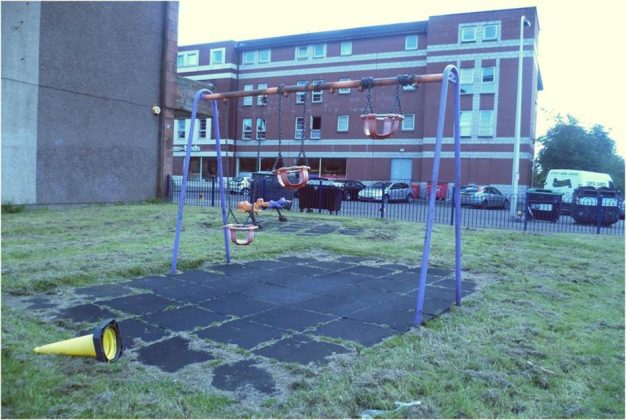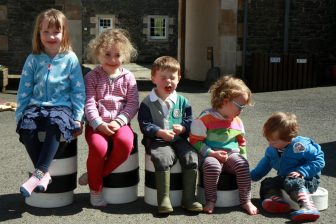
Wales leads the way in legislating for play
Young children have the enviable ability to turn almost anything, anywhere into play. So if children’s play just happens, why should national government intervene?
Across much of the world, children’s opportunities for outdoor free play, and the ability to go outside alone have been declining. Meanwhile, issues such as children’s physical and mental health are increasingly on the policy agenda.
Promoting children’s rights to play
What were once freedoms given to children in primary school, are now increasingly deferred to secondary school age, and the trend of ‘stranger danger’, risk aversion and indoor living is especially prominent in the UK. Although this is entangled in a complex web of social, economic and environmental factors, the overriding problem is that the time, space and attitudes that support children’s outdoor play have eroded. These issues can only be addressed through concerted, national action.
Recognising the problem, in 2010 the Welsh Government enacted a monumental piece of legislation that has meant, from 2012, local authorities in Wales have had a statutory duty to:
- Assess the sufficiency of play opportunities in their local area (for all people aged below 18); and
- Secure sufficient play opportunities for children, as far as is practical.
This duty cuts across different public service agendas, and requires all those whose roles affect children’s play to be involved. Especially helpful is that the process of producing assessments and ‘securing sufficient play opportunities’ has had to involve services such as town planning, which have often struggled to include children’s needs in their practice.
Child-centred approaches
This legislation leaves the concept of play sufficiency open to interpretation, but the organisation Play Wales has issued guidance that shows how play is more than simply providing playgrounds or structured activities. Some local authorities have taken particularly rigorous and child-centred approaches, such as defining play sufficiency based on how local children rate their play experience. Meanwhile, others have used a complex mix of mapping, area surveys and consultation with children and experts to determine what play sufficiency means for their locality.
This approach is still in its infancy, but there are already some emerging new policies from the planning sector that embrace a more critical and inclusive vision for children’s play. For instance, two local authorities have produced detailed guidance on how to integrate play opportunities within new housing developments, and one has identified a new regeneration project, aided by work conducted for the play sufficiency assessment. Moreover, another local authority has begun to work with academics, using their play sufficiency research, to understand the neighbourhood factors that can affect children’s perception of ‘play sufficiency’ at a micro level.
Whilst legislating for something that just happens may sound an extreme measure, the Welsh Government have understood the complex issues affecting children’s play rights, and shown their commitment by taking the experiences of children seriously. This may not be the only way to make the strategic changes to realise a child’s right to play, but it should send a message to other national governments about the power of valuing children throughout public services.
Disclaimer
I have been investigating the Welsh Government’s approach to play as part of my PhD in children’s rights and town planning in Scotland. This blog uses some findings I have gathered through interviews with professionals, and therefore I cannot reveal the names of individual local authorities.
Author: Jenny Wood
References:
Shaw, B., Bickett, M., Elliot, B., Fagan-Watson, B. & Mocca, E. (2015). Children’s Independent Mobility: An International Comparison and Recommendations for Action. London: Policy Studies Institute.
Welsh Assembly Government. (2010). The Children and Families (Wales) Measure.
Play Wales & The Welsh Government. (2012). Play Sufficiency Assessment Toolkit. Cardiff: The Welsh Government.
Russell, W. & Lester, S. (2013). Leopard Skin Wellies, a Top Hat and a Vacuum Cleaner Hose: An Analysis of Wales’ Play Sufficiency Assessment Duty. Cardiff: University of Gloucestershire and Play Wales.




Wales has done a good job in promoting play through Play Wales. Long may it continue.